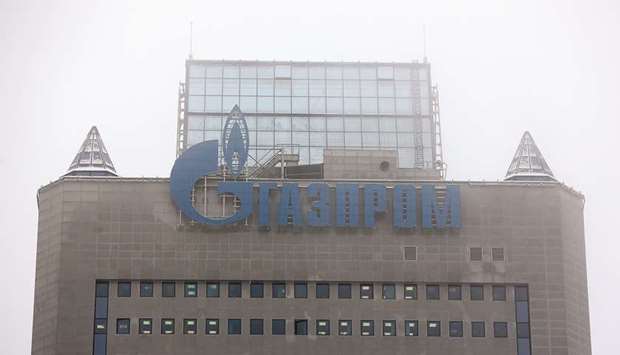The agreement brings customers in the east more in line with the conditions western utilities from RWE to Eni have sought from Gazprom through negotiations or via the courts.
“I expect to see lower gas prices in southeast Europe as Gazprom brings them closer to those paid by the buyers in western Europe,” said Elchin Mammadov, a utilities analyst at Bloomberg Intelligence in London.
The settlement will speed up the transformation of how Gazprom runs its business in Europe, said Simone Tagliapietra, analyst at the Bruegel think-tank in Brussels. “Gazprom is aware that the European gas market is changing,” she said. “They are simply adapting to the new market conditions.”
The agreement is more effective than immediately slapping Russia’s state-run export monopoly with a fine because it includes binding pledges to enable the free flow of gas at competitive prices in Central and Eastern Europe, the European Commission said on Thursday.
“These obligations will significantly change the way Gazprom operates in central and eastern Europe to the benefit of millions of European consumers when they heat their houses, when they cook their food and to the benefit of European businesses who rely on gas for their production,” EU Competition Commissioner Margrethe Vestager told reporters in Brussels on Thursday.
Because of Gazprom’s “monopolistic” position in eastern Europe, it’s those nations that will benefit the most from the agreement and help cut prices, said Geoffroy Hureau, the secretary-general of Cedigaz, a Paris-based industry research group. Meanwhile, the company’s biggest client in Europe is just happy that the case is coming to an end.
“These things dragged on for too long – they are a burden to discussions on other topics,” Uniper’s chief executive officer Klaus Schaefer said in an interview in St Petersburg. “Therefore to get clarity on this in due course is important.”
Uniper was spun off from EON SE two years ago. EON was among the first utilities to seek more flexible terms from Gazprom back in 2009. The financial crisis had damped demand for the fuel and made market rates, which utilities use to sell the fuel to their own clients, cheaper than fuel from Gazprom.
The settlement comes as Russia faces UK accusations it poisoned a double agent that sparked the largest collective expulsion of Russian intelligence officers. Still, a thaw in relations with Europe – an opportunity for rapprochement – came this month when the US pulled out of the Iran nuclear deal, angering other world powers. The EU’s antitrust case has been a thorn in Gazprom’s side since regulators conducted raids in 2011. But geopolitics crept into the antitrust case from the start after Russian President Vladimir Putin signed a decree in 2012 that gave the government the right to protect Gazprom from EU inquiries, but the commission stuck with its case.
Customers that bought gas originally for delivery to Hungary, Poland or Slovakia, can choose to have Gazprom deliver all or part of it to Bulgaria or the Baltic States instead and vice versa against a fee, the EU said.
But despite the outlook for better deals in the region, Poland’s Deputy Foreign Minister Konrad Szymanski told state newswire PAP he was disappointed that there were no penalties or compensation for years of higher prices than their western competitors. Lithuania doesn’t rule out appealing the decision of the European Commission not to fine Gazprom, Interfax reported, citing Prime Minister Saulius Skvernelis. “I know that some would have liked to see us fine Gazprom instead, no matter the solution on the table,” Vestager told reporters. “But a fine would not have achieved all of our competition objectives.” The Commissioner also underlined that if Gazprom breaks any of these obligations, it can impose a fine of as much as 10% of the company’s worldwide sales, without having to prove an infringement of EU antitrust rules. The EU obligations will be in place for eight years. “It is the enforcement of the Gazprom obligations that begins today,” Vestager said.
Deputy chief executive officer Alexander Medvedev said that Gazprom is “satisfied” with the settlement.
“We were always committed to cooperate in good faith in order to find a constructive, mutually acceptable solution in accordance with the established procedure,” he said in a statement.
“We believe that today’s decision is the most reasonable outcome for the well-functioning of the entire European gas market.”

